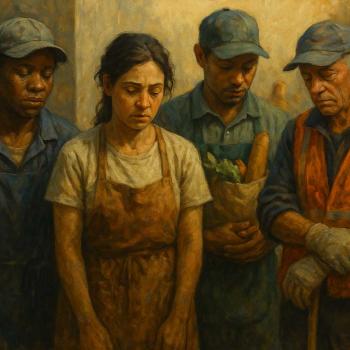I really, really like Hazbin Hotel. It’s about a girl, Charlie, who gets the idea that human souls in hell deserve a second chance at attaining heaven. Despite its cartoonish animation, much of the subject material is very heavy and adult-oriented. I feel a lot of fear surrounding my interest in this show. Yet it is very much a favorite of mine.
Charlie opens a hotel with the intention to rehabilitate those who land themselves in hell. Hell is hierarchical, and most souls involve themselves with a system similar to slavery either by owning slaves or being one themself.
There is a song in the show, called Loser, Baby, where two characters who are addicts to alcohol, sex, drugs, and gambling, amongst other things, have this emotionally cathartic moment of realization. Yes, they have problems, but they aren’t alone in those problems, and they can help each other. They also begin to come to the realization that there’s nothing wrong with them because they have issues. They’re both enslaved by psychopathic individuals who exploit and abuse them regularly.
As I was listening to this song, one of the things that came to me is just how very different this is from when I was growing up. I had to submit to authority figures like the church by telling a priest the most vulnerable, sometimes the ugliest, parts of me through confession. It felt like a shaming exercise.
In opposition, the act of telling people who are your equal in every way, shape, and form about your flaws and failures is very cathartic. It’s a very powerful thing to do. I feel like the way I grew up Catholic is a heavy distortion of what that moment truly could be of telling someone out loud. But I’m not alone in my mess and in my flaws. That’s the thing that I missed quite a bit growing up.
It is coercive to tell someone they have to talk about their most broken, vulnerable parts with the threat of an eternity in hell. I was encouraged to do this as often as once a week, and I found that extremely damaging.
It was abusive.
When you’re dealing with someone who’s above you, you have to worry about how they’re going to react. Are they going to react with judgement, are they going to react with mercy? There’s a never-ending paranoia of how the other will react.
Intimacy and vulnerability, when forced, can be very violating.
Confession feels inherently spiritually violent. That vulnerability and fear is forced out, regardless of whether or not someone is ready. That’s not to say no one can ever benefit from it. I do believe that people can benefit from confession depending on their states of mind.
Not going to confession feels like I’m giving myself dignity. I can repair relationships as they become damaged at our own pace. I don’t have to reveal myself to those who may or may not treat my most vulnerable self with respect.
I also feel deeply afraid that God wants me to perform this ritual, or else…
We as Christians are all equals in the eyes of God. The way some set themselves up as somehow being superior in wisdom, knowledge, or even goodness is a chronic problem within Christianity’s churches. Members of the clergy in various churches across denominations oftentimes don’t see themselves as the servant-leadership that Jesus called the Apostles to be when He washed their feet. There are so many examples of clergy members who take their popularity and leadership positions to abuse and betray the people they are meant to be serving.
Vulnerability is a precious gift to be shared with people after trust is built in relationship. It can be quite the beautiful thing when it flows naturally. But coercing it is dangerous and unhealthy.













